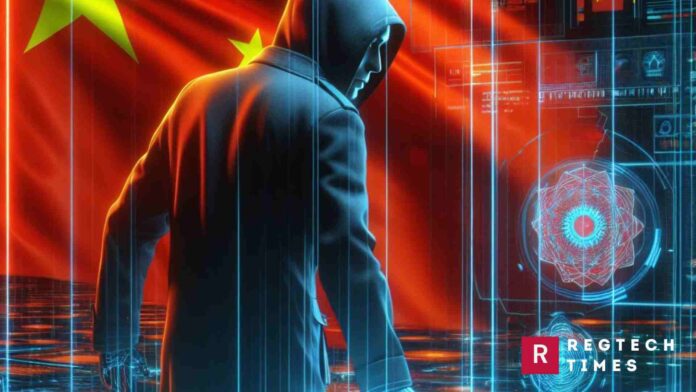In the shadowy realm of global espionage, China stands out as a formidable force. Recent Snowden-style revelations from an undercover agent, known only as Eric, have provided a rare glimpse into the secretive operations of a unit within China’s Ministry of Public Security (MPS).
Operating covertly from 2008 to early 2023, Eric’s disclosures to Four Corners, an investigative journalism program on Australian Broadcasting Corporation (ABC), have exposed the extent of China’s international intelligence operations, particularly its efforts to track down dissidents living overseas.
The Secret Police’s Tactics
China’s secret police, a significant arm of its intelligence apparatus, has come under scrutiny. Supported by secret documents and communications, Eric’s accounts of his assignments and targets in nations like China, India, Cambodia, Thailand, Canada, and Australia have been corroborated by Four Corners. His directives primarily focused on tracking down dissidents critical of the Chinese regime, showcasing the extent of China’s covert activities on foreign soil.
Xi Jinping’s Intelligence Expansion
Under the leadership of President Xi Jinping, China’s intelligence agencies have been elevated to unprecedented levels. Collaborating closely with the United Front Work Department (UFWD), China has extended its covert reach globally, targeting areas critical to its interests.Xi Jinping’s anti-corruption campaigns, Fox Hunt and Sky Net, have forcibly returned at least twelve thousand or more alleged fugitives to China, illustrating the country’s aggressive pursuit of individuals perceived as threats to the regime.
You May Like to Read
- Espionage: Unveiling the Covert World of Spies, Secrets, and Betrayal
- China is Changing Tactics in Cyber Espionage: A Focus on Zero Day Exploit
- Unveiling the Deep-Rooted Chinese Espionage in Europe: Arrests and Challenges
- Germany Arrests Far-Right MEP’s Aide for Espionage Amid Rising Concerns of Absolute Foreign Influence
Comparison to Edward Snowden
The parallels between Eric’s revelations and Edward Snowden’s whistleblowing in the United States are striking. Like Snowden, who leaked classified information exposing NSA surveillance programs, Eric’s disclosures highlight China’s covert activities and its efforts to suppress dissent beyond its borders.
Who is Edward Snowden?
Edward Snowden, a former American intelligence contractor, made headlines worldwide in 2013 when he leaked classified information from the National Security Agency (NSA) to journalists, exposing the extent of global surveillance programs operated by the NSA and its international partners.
As a former CIA employee and NSA contractor, Snowden’s disclosures revealed the mass collection of phone records and internet communications, sparking a global debate about privacy, government surveillance, and civil liberties. Some hailed him as a whistleblower exposing government overreach, while others criticized him for compromising national security.
Snowden fled to Hong Kong after leaking the documents and later sought asylum in Russia, where he currently resides. He faces charges in the United States under the Espionage Act for his actions.
Despite the controversy surrounding him, Snowden’s actions brought significant changes to the global conversation on surveillance and privacy. His leaks prompted reforms in the US and other countries, leading to increased transparency and oversight of intelligence agencies. Snowden’s disclosures also raised awareness among the public about the scope of government surveillance, sparking debates about the balance between national security and individual privacy that continue to resonate today.
As China grapples with the fallout from Eric’s revelations, the world watches closely, mindful of the implications for global espionage and civil liberties.
You May Like to Read
The revelations from Eric offer a rare insight into China’s espionage tactics and its global reach. As China continues to expand its intelligence operations, the international community must remain vigilant to protect against threats to democracy and freedom of speech.


